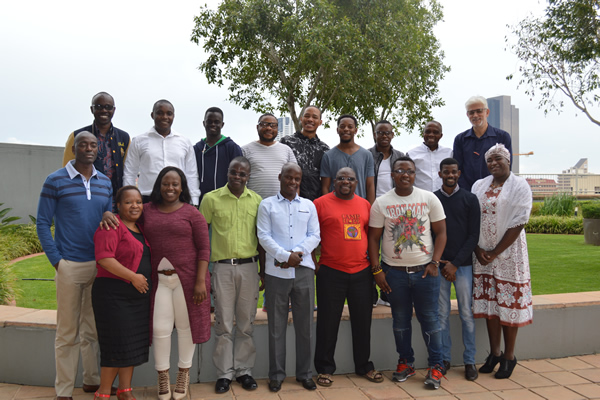The Sexual Orientation and Gender Identity and Expression Unit (SOGIE) of the Centre for Human Rights conducted a ‘Sexual minority rights in Africa training and dialogue’ from 23 Nov to 25 Nov 2016 at the Holiday Inn Express Hotel in Pretoria.
The aim of the training and dialogue was to train and dialogue with government department officials, the police, national human rights institutions, human rights NGO workers, and LGBTI activists on the human rights of sexual minorities (lesbians, gays, bisexuals, transgender persons, and intersex persons) in Africa, basing on the African Charter on Human and Peoples’ Rights. The change expected is that relevant government departments and NGOs will put more effort in enabling the rights of sexual minorities through the right policies, domestic laws, action and advocacy plans.
Participants came from South Africa and outside South Africa (Ghana, Uganda, Kenya, Mozambique and Namibia). The training was sponsored by the Royal Netherlands Embassy in Pretoria, the donors for the SOGIE Unit.
Supreme Court Judge of the Supreme Court of Mozambique Judge Pedro Nhatitima (who is also the spokesperson for the court)t was one of the participants in attendance. He said that as a Judge, his duty was to be professional and ensure that justice is served for all, despite their sexual orientation or gender identity and expression. He said courts had a duty to adhere to the Bill of Rights provided in the Constitution that provided for the rights of everyone.
Professor Frans Viljoen, the Director of the Centre for Human Rights took participants through the African Charter on Human and Peoples’ Rights and it’s provisions for rights for all, including sexual minorities. Other topics tackled in the training and dialogue were on issues like who transgender people are and what specific rights challenges they encounter, HIV and AIDS in the context of sexual minorities especially men who have sex with men and religion and sexual minority rights in Africa.
The Centre for Human Rights, through the SOGIE Unit, intends to hold such trainings and dialogues twice every year therefore interested stakeholders are encouraged to contact the Centre for more information.
